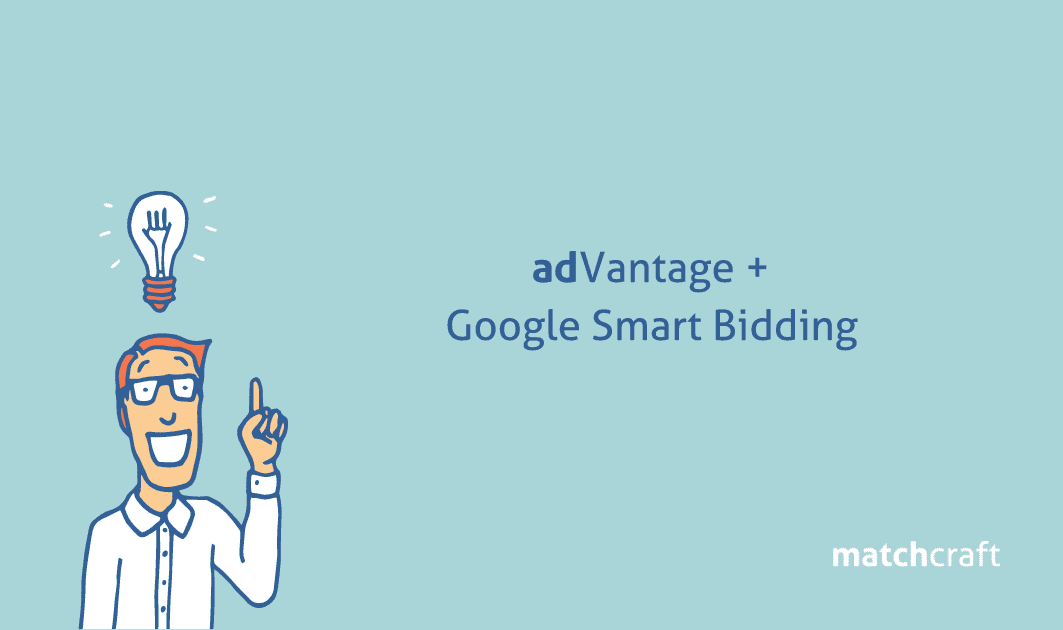For more than two decades, MatchCraft has offered best-in-class marketing solutions that enable companies to successfully sell and manage search, display, social campaigns for their advertisers. MatchCraft’s sophisticated technology and team of digital marketing enthusiasts work relentlessly to power local advertising campaigns for merchants across the globe.
Offering partners, and in turn their advertisers, the tools they need to be successful. That has been the driving force behind MatchCraft’s 23+ years of operation and was a key factor in the decision to incorporate Google’s Smart Bidding into its suite of services. MatchCraft’s proprietary bidding algorithm lies at the core of its AdVantage platform alongside its budget optimization, campaign management and reporting technology and offers partners the ability to manage multi-channel campaigns in a scalable manner. “The decision to invest in adding new capability was based on the criteria that, historically, many of MatchCraft’s development decisions have been based on: providing additional value to our partners and opportunity for enhanced performance for their local merchant campaigns,” states CEO Sandy Lohr. By giving partners a wide range of options and solutions, campaign managers can apply the right tool at the right time in a way that supports their business goals.
MatchCraft’s long history of supporting resellers provides them with insights into the unique needs of partners. By supporting the options that clients are interested in, clients are empowered to manage their business and their campaigns in a way that makes the most sense for their organization.
The Future of Marketing Automation:
Marketing Automation is a critical component of scalable operations as it drives growth and promotes efficiency in both man power and ad spend. In a May 2021 study published by the CMO Council, 50% of worldwide marketing leaders indicated that “marketing analytics, performance, and attribution” is a marketing technology priority for 2021, and “marketing automation and campaign/lead management” is a priority for 26% of those surveyed. With the massive expansion of marketing automation solutions, Frost & Sullivan predicts an increase in revenues from $2.9 billion in 2020 to $6.6 billion in 2026, providing a range of automation tools is key to creating an impartial environment for resellers and their advertisers.
Scalable Solutions:
Operating in a space with increasing volume and razor-thin margins, resellers and agencies alike are constantly faced with the challenge of delivering more for less. Google’s Smart Bidding technology is designed to optimize campaigns based on conversions or conversion value, and is promoted as a means of maximizing return for advertisers. By combining the two bidding technologies, resellers are given the option of running campaigns using MatchCraft’s automated bidding, in conjunction with enhanced CPCs, until the platform receives signals to activate Google Smart Bidding, at which point the switch is made automatically. The transition from one bidder to the other is made smoothly with no need for a campaign manager to touch the campaign.
Importance of Good Data:
As trusted advisors to their partners, it came as no surprise that MatchCraft’s clients began seeking their recommendations regarding Google’s Smart Bidding technology. From the outset, several clients expressed interest in the new technology and were willing to sponsor initial testing.
MatchCraft’s analysts compiled a before and after study across a subset of campaigns for both a US based client and a European based client. The key takeaway is that having meaningfully defined conversion data in Google Ads is imperative to successfully enable Smart Bidding. The findings of the analysis were mixed, the US based client saw 161% increase in goal completions per dollar spent, a 17% increase in phone calls per dollar, and a 12% increase in phone clicks per dollar. Conversely, the Europe based client reported a 31% decrease in goal completions per euro and a 5% decrease in phone clicks per euro. Both scenarios however, did report an increase in Cost Per Click, 43% for the US client and 55% for the European client. Paying more per click may be inconsequential if those clicks result in more conversions. Using CPC as a metric for performance evaluation is increasingly less common. Since an increased CPC was consistent across the test groups, it reinforces the need to have well defined conversion data.
Maintaining scalability was a critical consideration in MatchCraft’s approach to integrating Google Smart Bidding. By importing both matched calls from native call tracking services and conversion data from Google Analytics into Google Ads, MatchCraft has automated an otherwise manual setup process for Google Smart Bidding. Having concise goals set up in Google Analytics will result in more effective bid optimization no matter if that optimization is a result of MatchCraft’s own conversion based optimization or if it is a result of Google Smart Bidding.
MatchCraft recommends that resellers focus advertiser goals on tangible results such as:
- Phone clicks
- Requesting appointments
- Completing a sale
- Newsletter sign ups
- Requests for an estimate
Avoid setting up goals for “soft” results like time on site and visits to a specific page.
Putting the Customer First
As consumers become more digitally savvy and what used to be a linear customer journey starts looking more like a toddler’s art project, advertisers have an increasing need to diversify their digital advertising portfolio. By combining Google’s technology alongside its own, MatchCraft has ensured that advertisers can benefit from advertising across multiple channels. MatchCraft prides itself on being an impartial platform for resellers to manage their search and social campaigns.
Request A Demo
